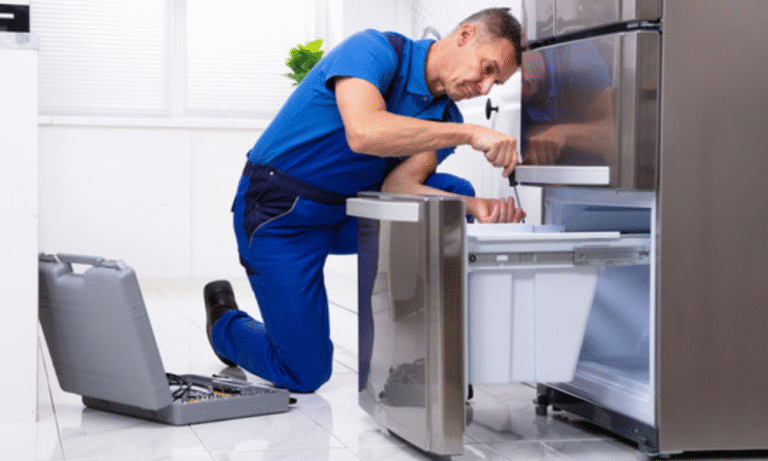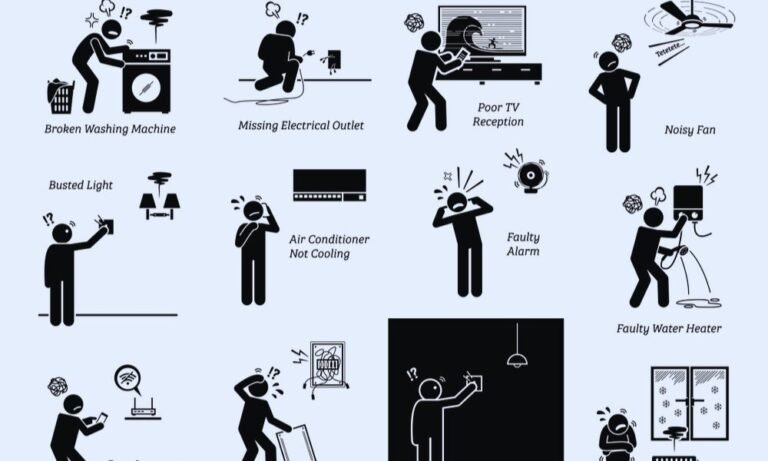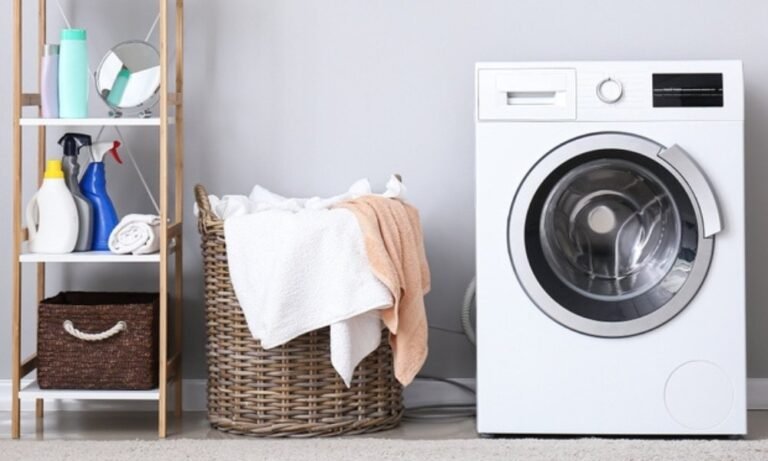Estimated reading time: 5 minutes
Appliance breakdowns happen when you least expect them—and let’s be honest, they always seem to strike at the worst possible time. Whether it’s a refrigerator that suddenly stops cooling or a washing machine that refuses to spin, unexpected repairs can put a dent in your budget. But before you panic and rush into an expensive fix, there are plenty of smart ways to cut costs without compromising quality.
Over the years, I’ve seen countless homeowners overspend on appliance repairs simply because they didn’t know their options. Let’s change that. I’ll walk you through some practical, budget-friendly strategies to help you fix, maintain, and extend the life of your appliances without breaking the bank.
What You’ll Learn in This Guide:
Common mistakes that lead to costly appliance repairs
When to DIY and when to call a professional
Money-saving repair strategies that actually work
How to avoid repair scams and overpriced services
When it’s time to repair vs. replace an appliance
If saving money on appliance repairs sounds good to you, keep reading.
Costly Appliance Repair Mistakes to Avoid
Many expensive repairs start with small, preventable mistakes. If you want to keep repair costs low, avoid these common pitfalls:
Ignoring small problems – That weird noise, slow drain, or occasional overheating? It’s your appliance begging for attention before things get worse.
Skipping routine maintenance – Simple tasks like cleaning condenser coils, replacing filters, and checking door seals can prevent costly breakdowns. (Check out this guide on how maintenance saves money in the long run.)
Overloading appliances – Stuffing your washer or dishwasher beyond its limit can strain motors and belts, leading to expensive repairs.
DIY gone wrong – Some repairs are safe to tackle yourself, but guessing your way through a complex fix can do more harm than good.
Now that we know what not to do, let’s talk about what you can do to save money.
DIY vs. Professional Repair: When to Save & When to Call a Pro

Small Fixes You Can Handle Yourself
If you’re comfortable with basic tools, you can DIY simple repairs and save on labor costs. Some easy fixes include:
Replacing a refrigerator door seal to keep the cold air in.
Unclogging dishwasher spray arms to improve cleaning performance.
Cleaning dryer vents to prevent overheating and reduce energy bills.
When to Call a Professional
Some repairs require expertise—and let’s be honest, messing with gas lines or high-voltage components is never a good idea. If you run into any of these problems, it’s time to hire a pro:
Refrigerant leaks – These require special handling and can’t be fixed with a DIY hack.
Compressor issues – If your fridge is running but not cooling, it may need a compressor replacement.
Electrical malfunctions – Anything involving wiring, fuses, or control boards is best left to a technician.
(Need help deciding when to fix it yourself vs. calling a technician? Check out this breakdown.)
How to Reduce Appliance Repair Costs
Now, let’s get into some practical, budget-friendly strategies that can cut repair costs significantly.
Compare Repair Quotes
- Don’t settle for the first estimate you get—shop around and ask for quotes from at least two or three repair services.
- Ask for a detailed breakdown of costs so you understand what you’re paying for.
Check Your Warranty First
- Before paying out of pocket, check if your appliance is still under manufacturer or extended warranty.
- Some credit card companies even offer repair coverage for purchases—it’s worth checking!
Invest in Quality Replacement Parts
- Cheap parts may save you money upfront, but they often fail sooner and lead to repeat repairs.
- Always go for reliable, brand-approved components when replacing parts.
Preventative Maintenance = Fewer Repairs
A little effort now can save you hundreds of dollars later.
Clean refrigerator coils every six months to prevent overheating.
Keep vents clear in dryers and dishwashers to avoid strain on motors.
Regularly check for leaks, worn-out seals, and odd noises—catching small issues early prevents big repair bills later.
If you need a quick maintenance refresher, take a look at this guide on keeping appliances in top shape.
How to Avoid Repair Scams & Overpriced Services

Unfortunately, not all repair services are trustworthy. Some charge outrageous fees for simple fixes, while others recommend unnecessary part replacements to pad the bill.
Red Flags to Watch Out For:
Upfront payment for “diagnosis” before any work is done.
Extremely low service fees (often a bait-and-switch tactic).
Pushy upselling for extra services you don’t need.
When hiring a repair service, check reviews, ratings, and certifications before committing. Need help choosing a reliable technician? This guide on hiring an appliance repair service can help.
Repair vs. Replace: When Is It Worth Fixing?
At some point, repairs stop making financial sense. Here’s a simple rule of thumb:
If the repair costs less than 50% of the price of a new appliance, it’s worth fixing.
If the appliance is past 75% of its expected lifespan, replacement might be the smarter option.
Average Lifespan of Major Appliances:
- Refrigerators: 10–15 years
- Washing machines: 8–12 years
- Dishwashers: 9–10 years
- Dryers: 10–13 years
If your fridge is constantly breaking down, check if it’s time for a professional repair or if a replacement makes more sense.
Final Thoughts: How to Keep Your Repairs Affordable
Saving money on appliance repairs is all about smart decisions.
- Know when to DIY and when to call an expert.
- Don’t ignore small problems—they turn into expensive ones fast.
- Shop around for fair pricing and avoid shady repair services.
- Invest in quality maintenance to extend the lifespan of your appliances.
The best way to save money on repairs? Prevent them from happening in the first place. Need more ways to cut costs and keep your appliances in peak condition? Check out these common appliance problems and how to avoid them.
A little effort today can save hundreds—if not thousands—down the line. Now that’s what I call smart saving!



